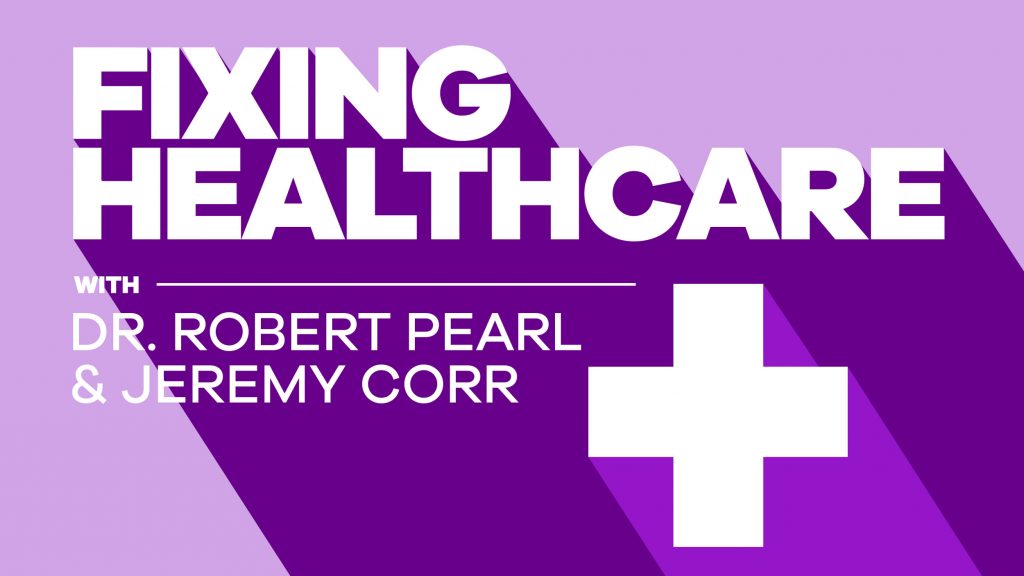At the end of Episode 14, Fixing Healthcare co-hosts Dr. Robert Pearl and Jeremy Corr turned to listeners for ideas and suggestions about the role of government in healthcare.
This regular feature of Season 3 comes by way of the new Fixing Healthcare Survey. Please click the link and continue to give us your input. Robert and Jeremy might share your ideas on a future episode.
This month, Christopher Phillips and Daniel F. McCarter, MD told us that the government should promote greater price transparency throughout the healthcare system.
Transcript from Fixing Healthcare (Episode 14)
ROBERT: Before we go, let’s take a few minutes to hear what our listeners had to say about the role of government in healthcare. The following comments come to us courtesy of the new “Fixing Healthcare Survey,” which is available on my website RobertPearlMD.com. Polling is still, so please don’t forget to send us your thoughts.
JEREMY: Many of our listeners wrote us about how the government should pay for healthcare. Several of them sided with John Delaney. Like Christopher Phillips who says, quote, No socialized health care! He thinks the government should allow people to choose the best health care coverage they can afford. He also says, each state should allow for a safety net to protect our nation’s unemployed, homeless or those who’ve simply lost their coverage. Daniel F. McCarter, MD says that the government needs to make sure that doctors are paid based on their outcomes rather than simply paying doctors to do more. Daniel believes one way to do that is to increase reimbursements for high-quality primary care. Robbie, our guest today has been a vocal critic of single payer coverage. What do you think is the right way to finance healthcare in America?
ROBERT: This is one of the most complex issues our nation faces. One way to view it is that the costs are born by people, regardless of who writes the final check. They pay either through premiums if individually purchased, through lower wages if employer based, and through higher taxes if government provided.
What’s often missed, particularly in the current political debate, is that regardless of who pays, healthcare coverage will become unaffordable if the cost continues rising faster than overall inflation and GDP. And when that happens, whoever the payer is will try to transfer the costs to someone else. And when that is no longer possible, rationing in some form will be inevitable.
What’s also missing from the conversation is a focus on the delivery system, which is over-priced and under-performing. Unfortunately, given the political clout of the major healthcare players, this issue has become medicine’s third-rail and nobody wants to touch it.
JEREMY: Once again, thanks to Christopher Phillips, Daniel McCarter, and everyone who has participated in the new Fixing Healthcare survey so far on robertpearlmd.com.
READ: Full transcript for Episode 14 with John Delaney
* * *
Fixing Healthcare is a co-production of Dr. Robert Pearl and Jeremy Corr. Subscribe to the show via Apple Podcasts or wherever you find podcasts. Join the conversation or suggest a guest by following the show on Twitter and LinkedIn.

